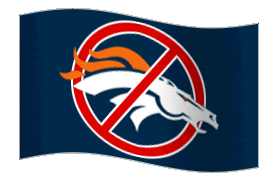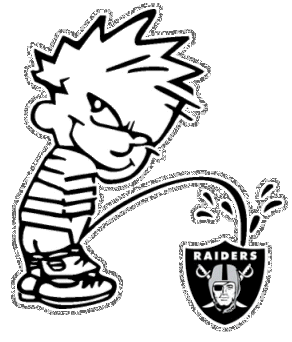Drew Brees is the hurt that won’t heal, the second guess that won’t stop, the big arm that got away, Ryan Leaf in reverse.
Just as the grief of Chargers fans was transitioning from anger to, well, more anger, just after one local pastor opened his Sunday sermon by lamenting the Bolts’ playoff loss to “the stupid Jets,” here was Brees sprinkling creole salt on San Diego’s open wound.
In leading the New Orleans Saints to their first Super Bowl Sunday afternoon, the erstwhile Chargers quarterback has brought rapture to the bayou and fresh rancor to the seething fans of his former team. He has revived a debate that is sometimes dormant but never dies — the question of whether the Chargers exercised haste, waste or careful calculation in letting Brees leave.
The simple answer is that it was never a simple question; that General Manager A.J. Smith’s decision was not made in a vacuum, but as the product of converging personnel and financial forces. While many Chargers fans remain miffed that a Pro Bowl quarterback could walk away for comparatively token compensation, it is not altogether clear — even in retrospect — that a better alternative was available.
To review: The Chargers drafted Eli Manning in the first round of the 2004 NFL draft, then turned around and traded him to the New York Giants for a package featuring Philip Rivers. Manning purportedly wanted no part of the Chargers — since Tom Condon represented both Manning and Brees, the agent’s agenda entailed conflicting interests — but the team’s insistence on finding a new quarterback was largely driven by doubts Brees had been unable to dispel.
The Chargers owned the No. 1 overall selection that spring as the reward for a 4-12 finish the preceding fall. Brees’ record as an NFL starter was then 10-17. He had thrown 31 interceptions against 29 touchdown passes. He was unquestionably undersized, allegedly the owner of a substandard arm, not nearly the player he would later become.
“Like any young quarterback, it takes time,” former Chargers coach Marty Schottenheimer said yesterday. “Like with (Mark) Sanchez in New York, people don’t realize how hard it is to get a young quarterback to play the game at the speed it is played. …
“I think the thing about Drew is that he’s a student of the game. He understands the mechanics of throwing the football, and he had great balance. I just think he reached the point where the skill set he had was complemented by (experience). When those two things dovetailed enough times, he had a chance to become a big-time quarterback.”
Because Brees’ breakthrough 2004 season dovetailed with Rivers’ rookie year, the Chargers found themselves with an unexpected surplus of talent at football’s priciest position. Smith plainly preferred Rivers, and arguably had a larger stake in his success because he had inherited Brees, but he saw enough in the Chargers’ 2004 playoff run to apply an $8 million “franchise” tag to Brees for the 2005 season.
Brees had taken a series of extraordinary steps to improve his game before the 2004 season, enlisting the aid of dietitians, exercise experts, personal performance coaches, personality analyses and former baseball pitching coach Tom House. Through this painstaking process, Brees remade himself from the NFL’s 29th-ranked quarterback into a Pro Bowl player.
Still, Smith wasn’t completely sold. His praise of Brees was consistently faint and his negotiating stance conspicuously short-term. While Brees stumped for a multi-year contract, the Chargers showed little interest in locking him up for any length of time. Even that tepid interest evaporated when Denver’s Gerard Warren smashed Brees’ right shoulder in a pileup during the Chargers’ 2005 season finale.
With Brees fresh from surgery on a torn labrum, the Chargers offered their recuperating quarterback an incentive-laden lowball deal, possibly just for appearances. Brees chose instead to sign a contract with New Orleans that included $10 million guaranteed.
“It was never discussed with me that it was going to be done until after the fact,” Schottenheimer said. “I was disappointed in it. From my perspective, we could have had an opportunity to work and develop them (both) over a period of time. But on the other hand, Philip Rivers has turned out to be a pretty good quarterback, too.”
Among the more popular alternative scenarios was one in which the Chargers would have “franchised” Brees a second time as an insurance policy in the event Rivers stumbled, and as a means of exploiting his trade value in the event Rivers succeeded. There might be an argument for that approach, but it’s not a particularly pragmatic argument. Keeping Brees at that point would have entailed paying a post-operative quarterback roughly $9 million to fill what was projected to be a backup role.
That’s like leasing a Lamborghini just in case your Ferrari breaks down.
Conceivably, the Chargers could have kept the battered Brees and traded a healthy Rivers, but that was never a realistic option. Even now, with Brees one win from the Lombardi Trophy, it’s not yet obvious which guy will have the better career. That’s not a slight for either player, either, but a tribute to them both.
What bearing Brees’ injury had on his career path is conjecture, but it likely pushed Smith in the direction he was already leaning. Having provided Rivers a two-year apprenticeship, Chargers management was eager to see the kid play.
“I don’t know what we would have decided with a healthy (Brees),” Smith said at the time. “I don’t know if the value would have changed or how much it would have changed. But (was it) a factor? Absolutely.”
Smith declined an interview request yesterday, but he has often made the point that the Chargers did not allow Brees to walk away “for nothing,” as is widely perceived.
Because the Chargers tend to be spectators in the marketplace for front-line free agents, they ultimately received a third-round 2007 draft choice as compensation for Brees signing with the Saints. That draft choice was spent on Clemson linebacker Anthony Waters, who was credited with three tackles before the Chargers cut him last February.
Feel better? Didn’t think so.













0 comments:
Post a Comment